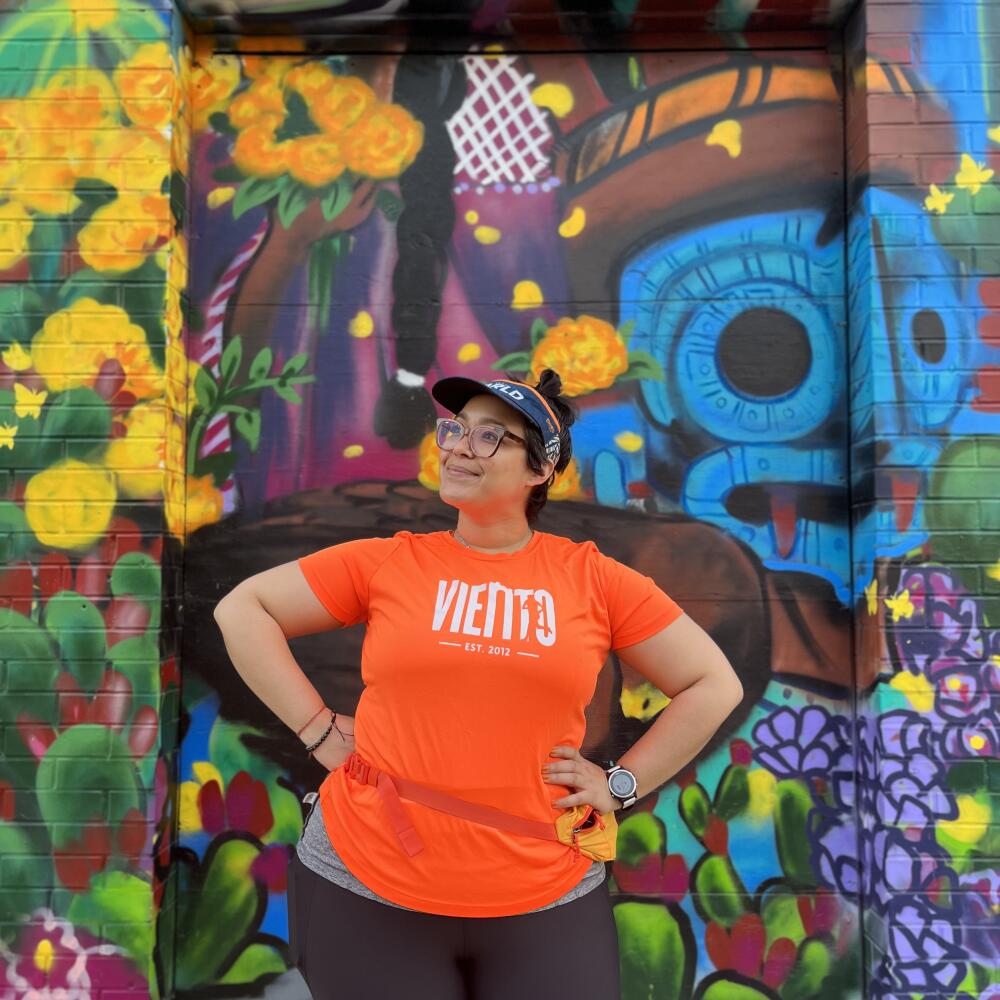
- Share via
Chicago — Too often the world of running has felt exclusionary and limited to the more affluent parts of any city. But in Chicago, a group of runners, young and old and at all levels of fitness, is creating healthy spaces for Latinos to take back their neighborhoods and improve their mental and physical health.
Meet Chicago’s Latinx running clubs.
Venados Running Club
Pablo Hernandez, 73, began running in the 1980s as a way to clear his head during a rough personal patch.
“Encontré que corriendo me sentía mejor física y mentalmente mucho mejor, and the rest is history,” Hernandez said.
Once Hernandez began to run around the McKinley Park area in Chicago, a predominantly Latino community, other men from the area quickly joined in.
“Al rato se me juntó uno, luego otro y otro,” Hernandez said.
Prior to that, Hernandez did not see Latinos in the Chicago running community. While he might have noticed individual Latino runners on their own, they were never running in groups or participating in competitive races. It was a sport typically dominated by white individuals, he said, in other areas of the city near Lake Michigan.
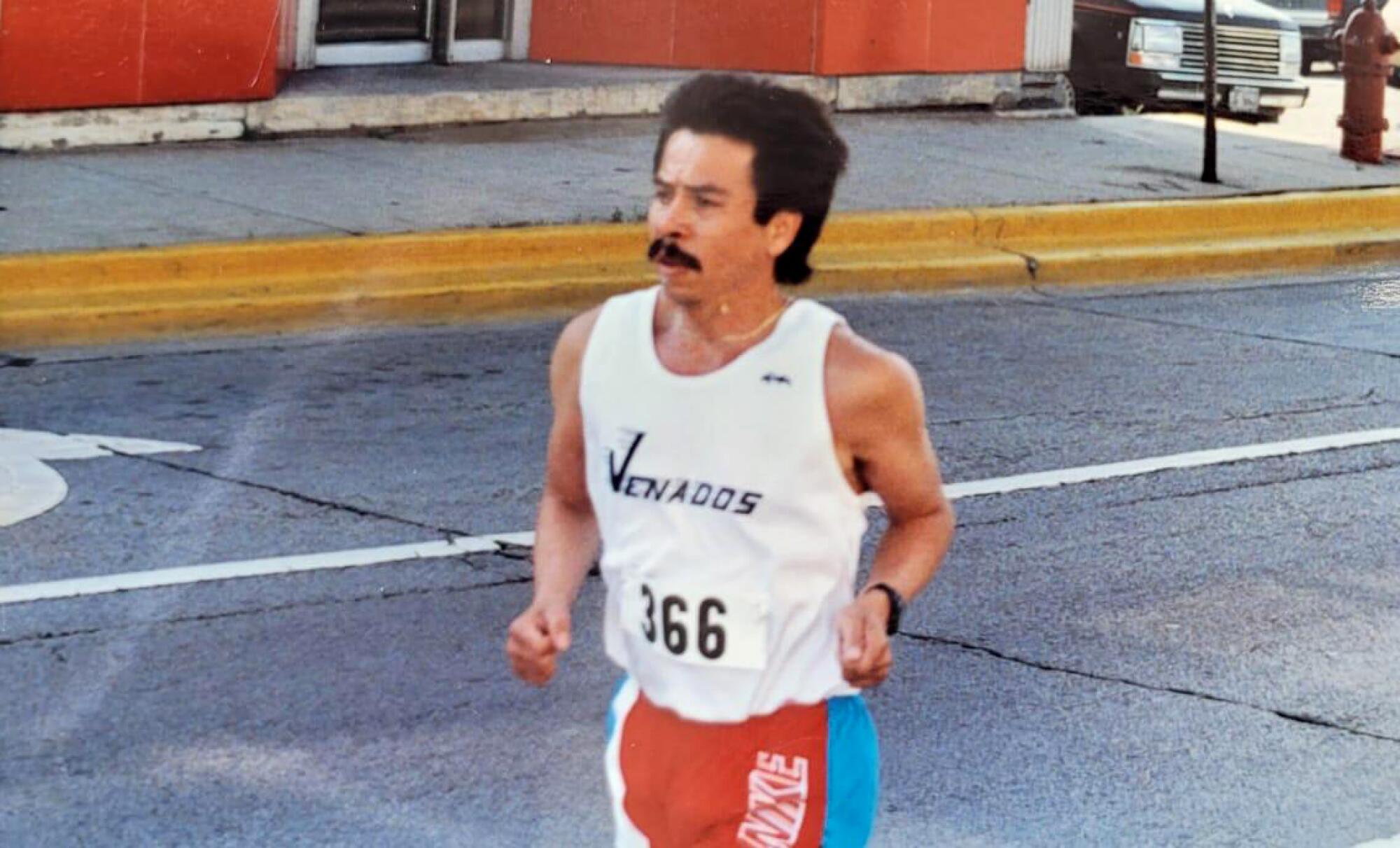
Soon enough the group started to call themselves Venados.
“Un venado es un animal muy veloz. Muy alerta y veloz,” Hernandez said.
More Latinos joined the club, like Eliberto Rivera, 73, also known as “Pops.”
“Adonde quiera andábamos corriendo, invierno, aguacero, con viento, con lluvia, nublado, el correr es bonito,” Rivera said.
Pops says he uses running as a way to relieve stress and as a form of therapy.
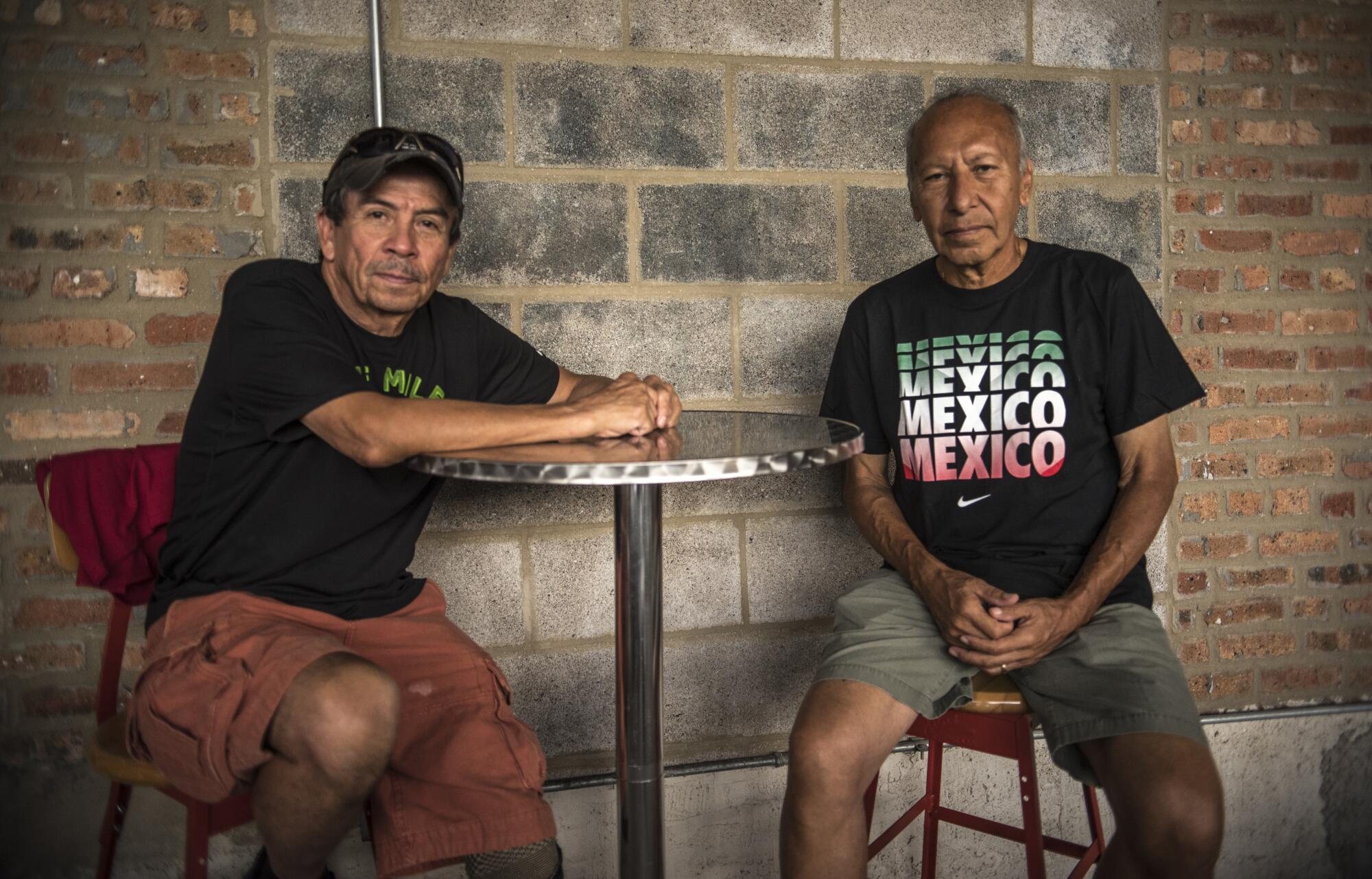
The Venados Running Club ran strong through the decades. Members participated in marathons, and both Hernandez and Pops ran well into the later years of life.
Hernandez stopped running a year ago due to knee problems, though he still implements the values of wellness into other activities like walking.
Pops ran his last marathon in 2019 with the support of his son Enrique Rivera, who “grew up being taken to races, spectating in races, volunteering in races,” Enrique said.
Running brought the father and son closer. Enrique took over the Venados Running Club in the early 2000s.
“It came full circle,” he said.
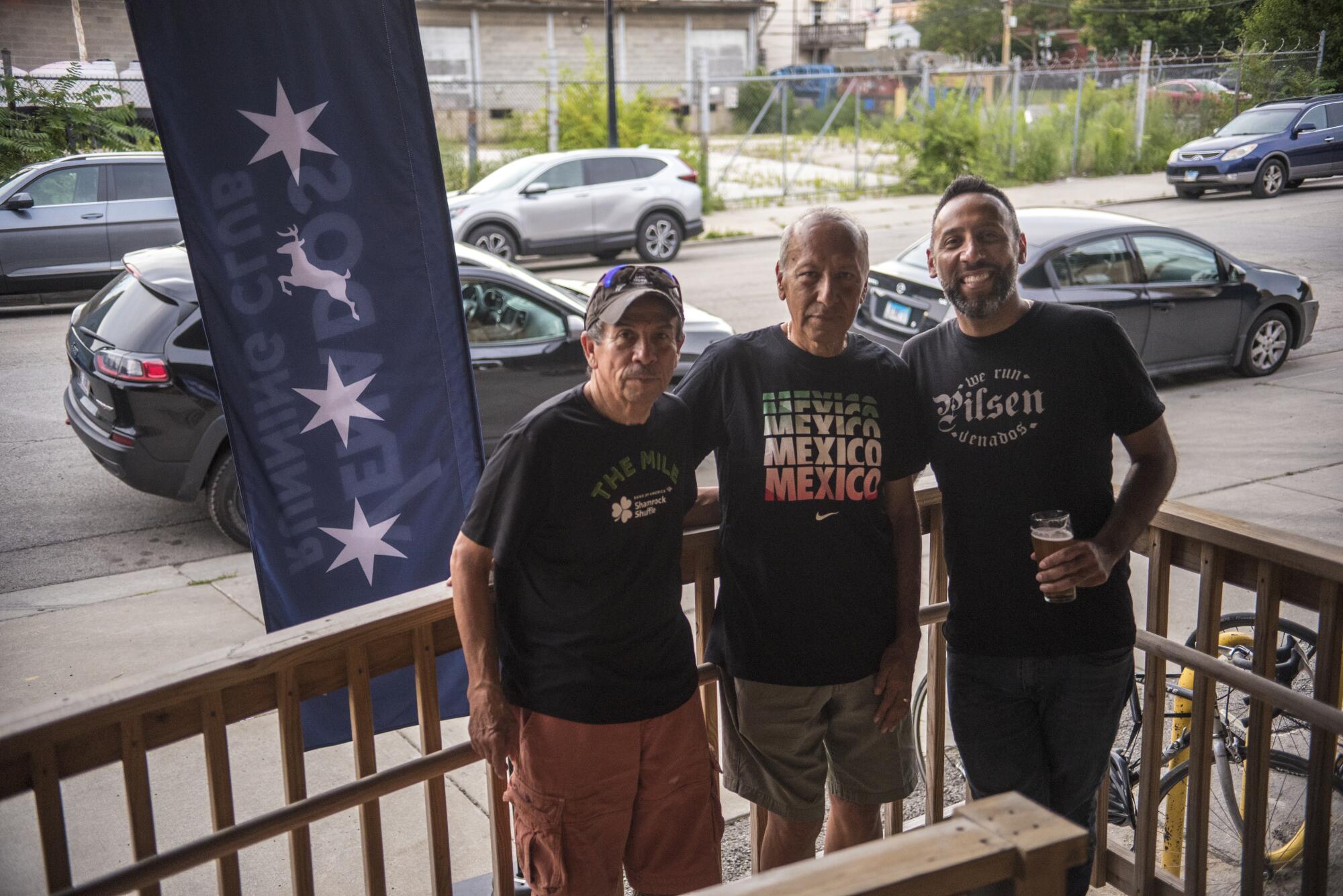
Back then, the group ran out of Rivera’s house in the Pilsen neighborhood of Chicago, but when the COVID-19 pandemic hit, the group, like everything else in the world, stopped running.
Though members continued to actively cheer people on their individual running journeys throughout the pandemic, Rivera missed the community aspect of Venados, the casual chats and post-run beers during the cool down. He reached out to mother-daughter pair Ruby and Lucy Negrete about restarting the club.
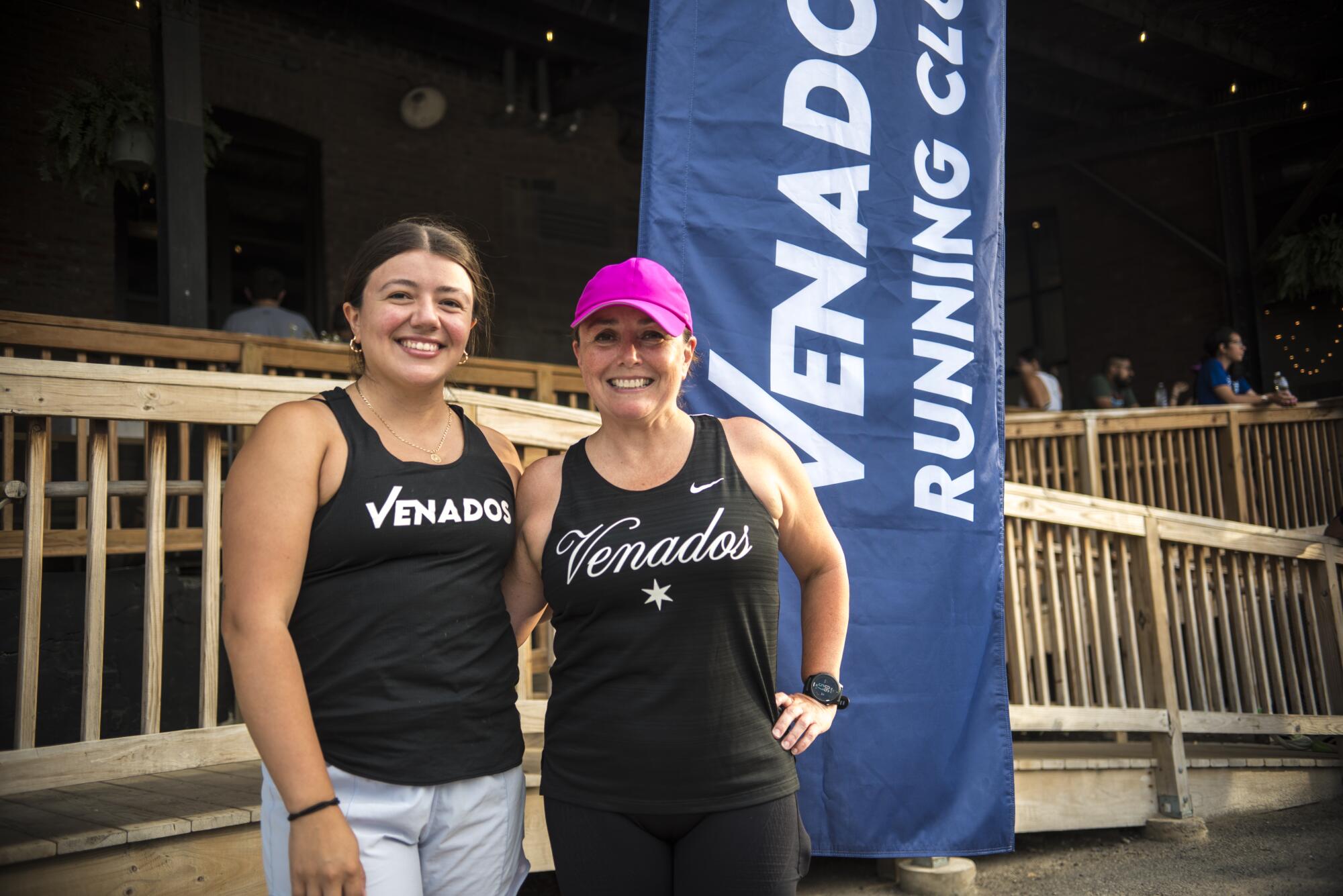
“It was the first time I felt good at something, [and] I was surrounded by [Venados],” Ruby Negrete said, who started running with Venados more than a decade ago.
Venados officially regrouped in 2022, with more than 100 runners showing up every week since then, according to the group.
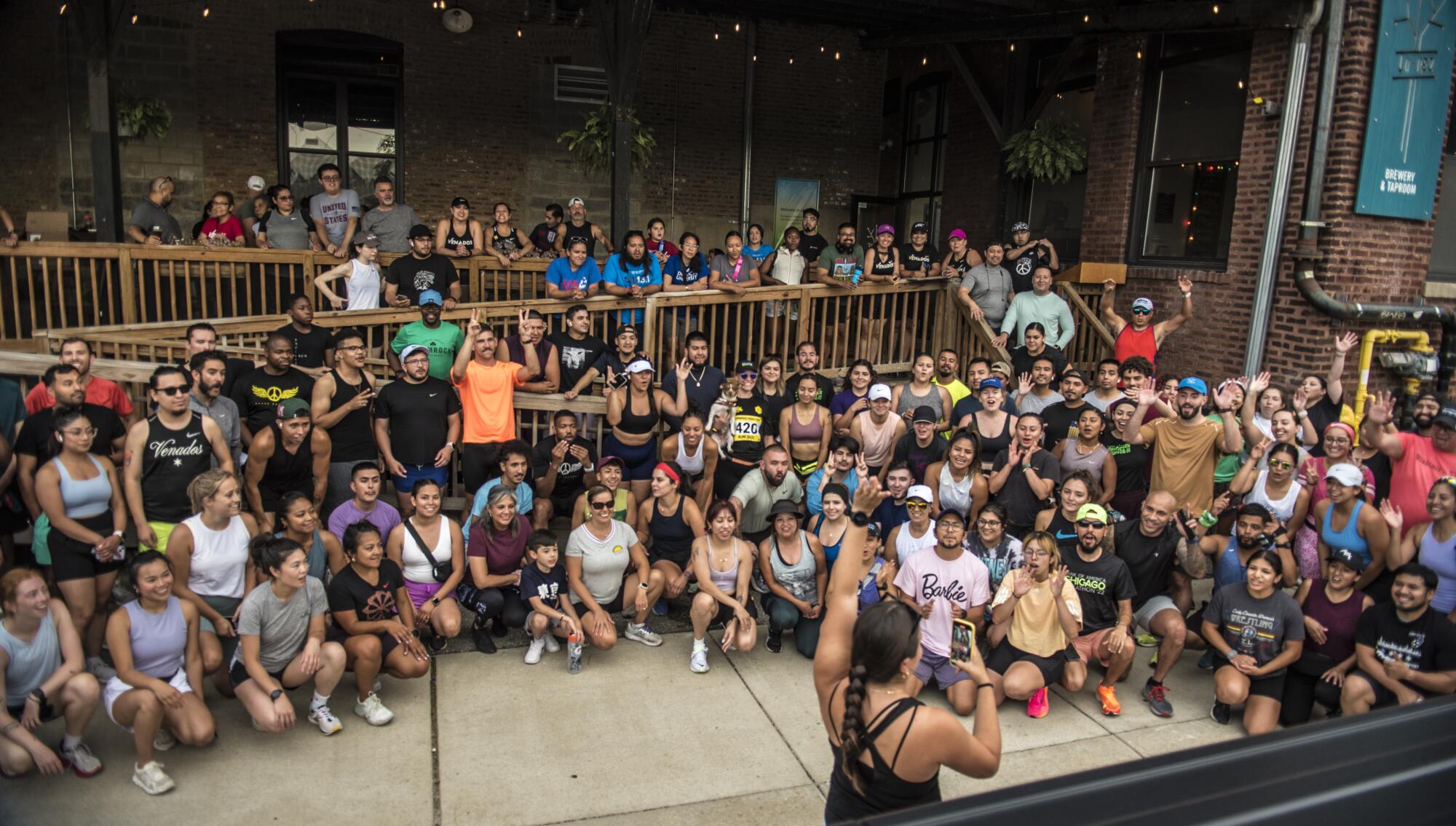
Ruby believes that the Venado legacy pushes against the stereotypical norms of Latino culture because it was started by a group of all Latinos men, in a sport dominated by the white community.
“It’s honestly a beautiful thing that we can continue to take up space within our communities. Because I know a lot of us share the same stories,” Ruby said.
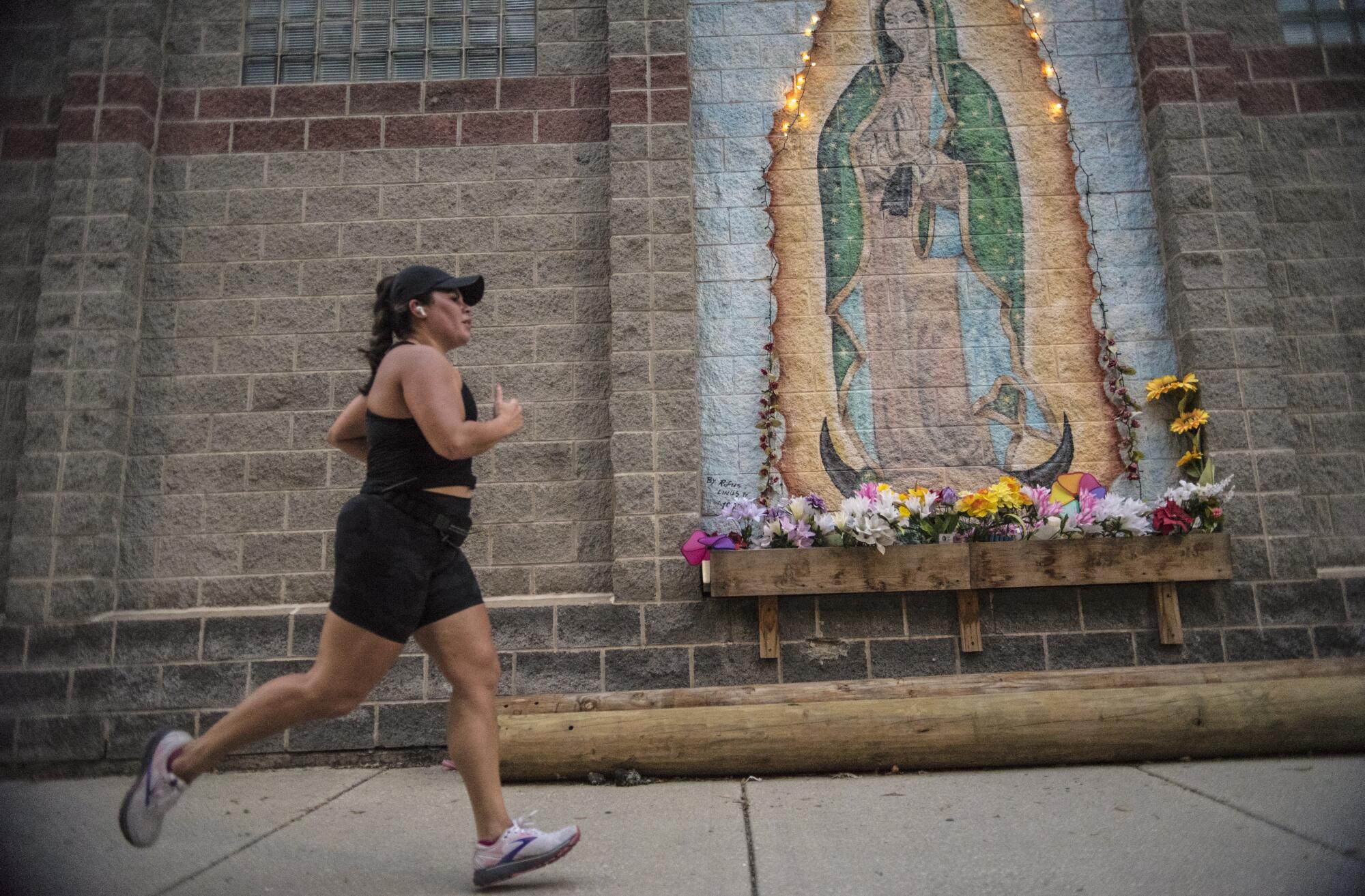
The group now runs out of Lo Rez Brewery & Taproom.
Viento Running Club
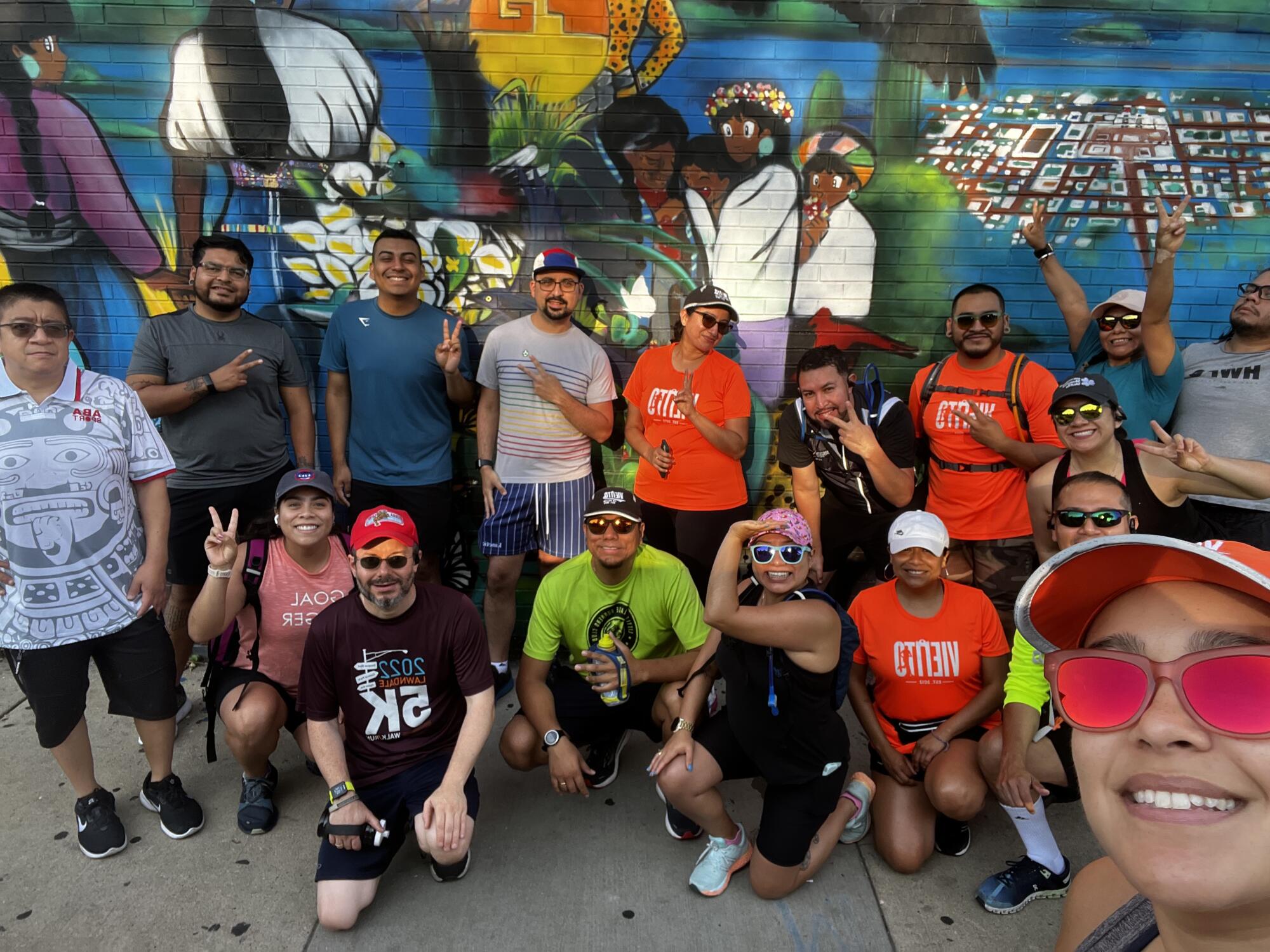
Jess Vergara, 35, never saw themselves as a runner, but unsure of what to do with their time post-college, they decided to train for a 5K run.
“It was really more for my mental health than it was for anything else,” Vergara said.
Vergara started running around a local elementary school when they were approached by three women, Christina Carreto, Yesenia Mariscal and Carmen Vergara (no relation to Jess), who wanted to start a running club in the community.
Running is an uncommon activity in Little Village, Jess said, and often an indicator of a safe community. But Jess says, “Little Village hasn’t really been known for being safe.”
Yet, the group of four women decided to rewrite the narratives associated with the Chicago neighborhood.
“We want to take back our streets ... You should be able to run through it,” Jess said.
The group, originally named the Little Village Runners Club, then Viento, started running in 2012. The name Viento, which means “wind” in Spanish, “ties with the Windy City,” Jess said.
When the group first started, Jess said it was “weird” for the community to see a group of 20 people running, “because people were either like, should I be running from something, [too]?”
“The police asked us what we were doing,” Jess said.
“It is our reality,” Jess said. “We can’t get around it, and we’re just embracing what is our neighborhood rather than trying to like cover it.”
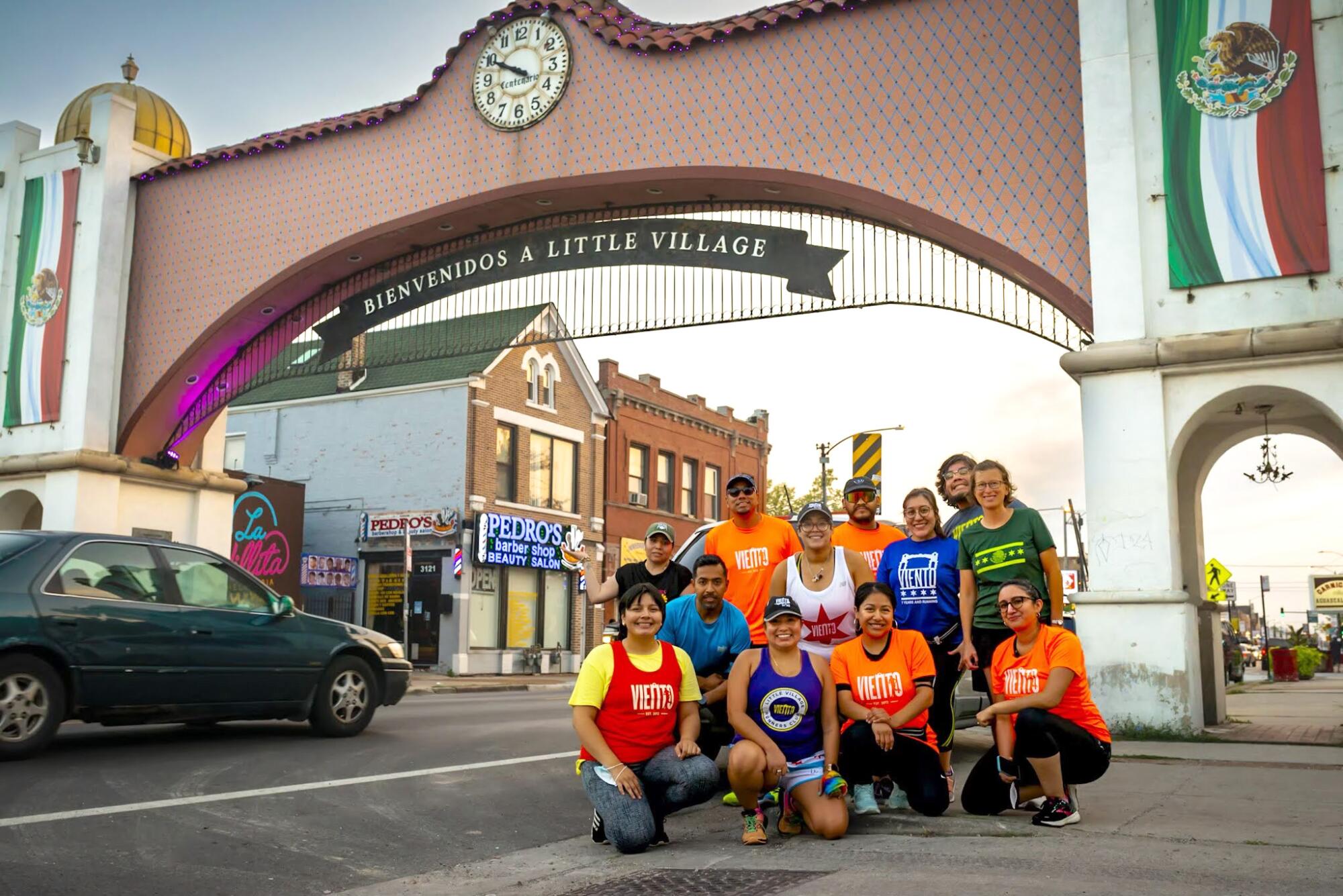
With Viento, members never run alone, and all speeds and skills are welcomed.
“We will never let you run alone, even if you’re slow, or even if you just want to walk,” Jess said.
Even post-run, members will walk back home together if they are heading in the same direction.
For Jess, who has lived in the Little Village neighborhood their entire life, there was no shying away from reclaiming the space as a running group.
“It’s my neighborhood,” they said. “[Running] still helps my mental health, but it’s mainly now just to kind of connect with my neighborhood.”
Tortugas Run Club
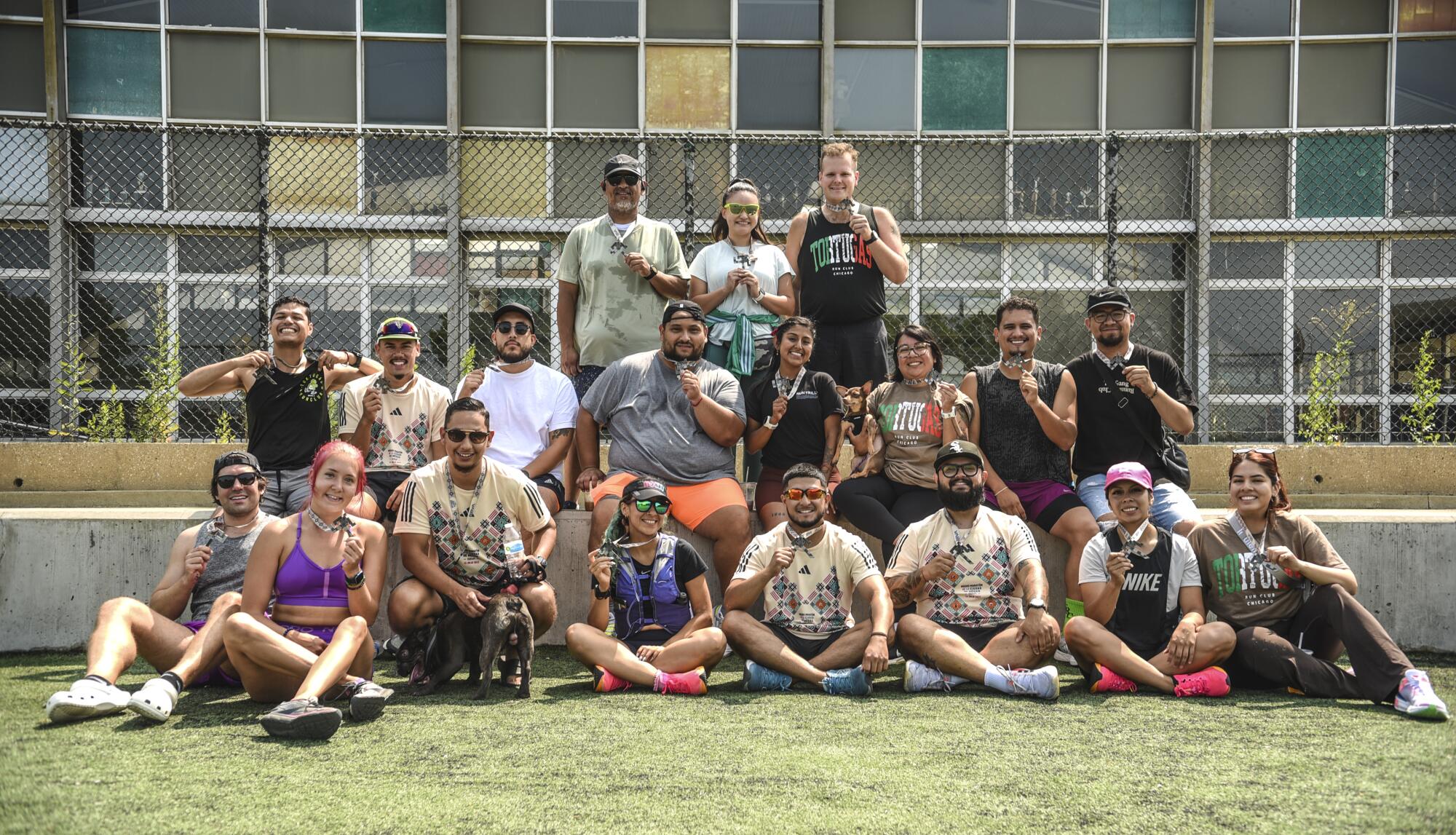
David Ruiz, 34, began running before the pandemic as part of a half-marathon training program, but while he was surrounded by 50 other runners, he felt alone.
“Nobody looked like me and nobody was as slow as me,” Ruiz said. “So at the end of the day, I was still by myself, running by myself.”
Still, Ruiz was at his happiest when he ran. The act alone allowed him to tune out the negative thinking and self-doubt during a difficult time in his life.
“[Running] picks you up, makes you feel better about yourself,” he said.
The isolating experience of half-marathon training made him realize a need for a different type of running club in the community.
“I want to start a run club for slower paced runners,” Ruiz said. “So I’ll call it Tortugas Run Club.”
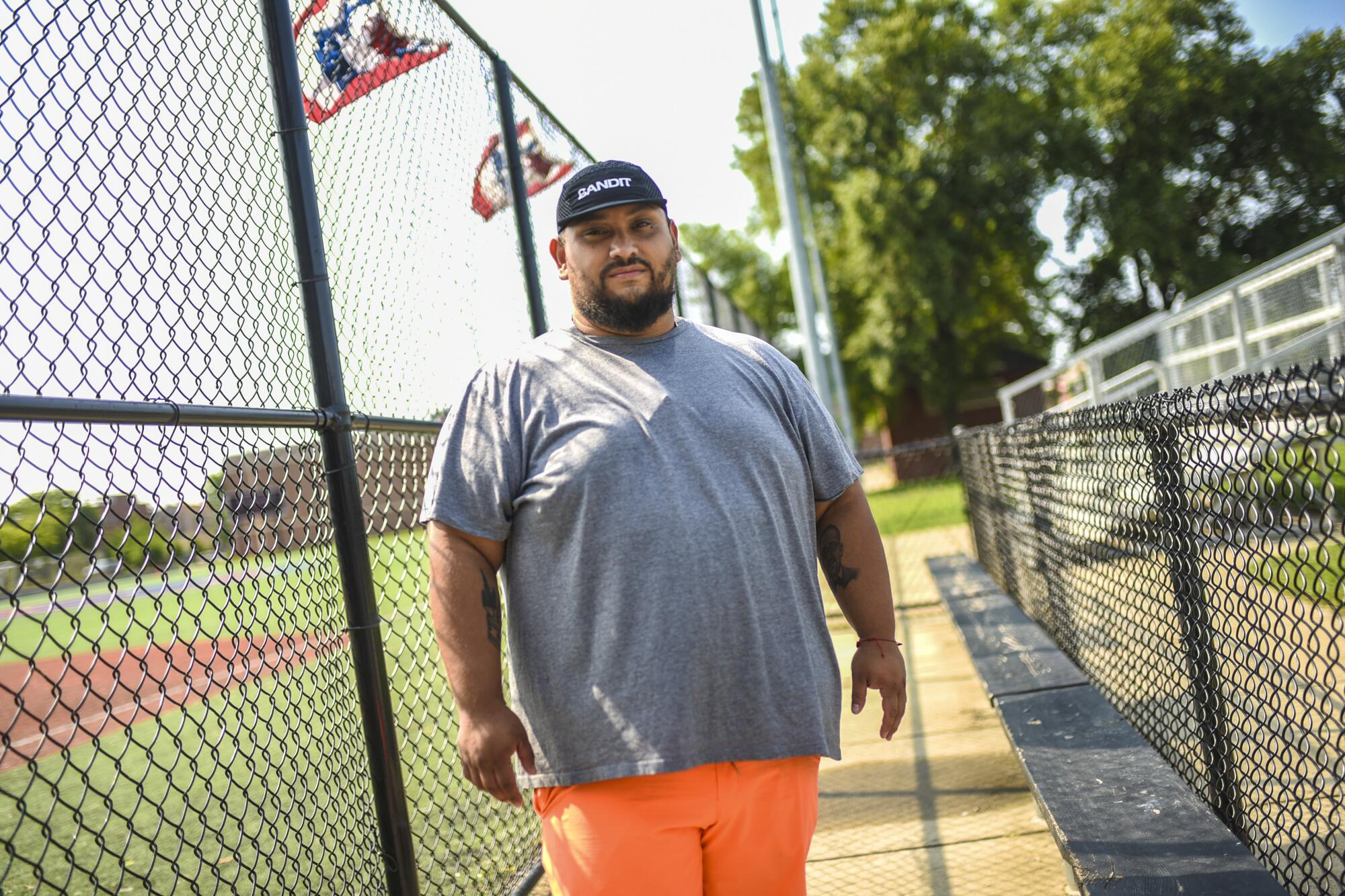
Ruiz originally got the name “Tortugas,” or “turtles,” from a family photo album. He came across a picture of his mother and aunts at a 5K race, and they would call themselves “Tortugas,” poking fun at their slower speed.
The group meets on Sundays at Harrison Park, where Ruiz grew up playing softball with his late father.
“I wanted to pay tribute to him, and I wanted to re-create memories and create new memories,” he said.
At first, it was just Ruiz, his cousin, sister and brother-in-law. Then suddenly the group grew.
“One day, I look up and there’s 15 [runners]. The next week, I look up and there’s like 30,” Ruiz said. “It just kept going up from there.”
Now, the group averages about 50 people a week, according to Ruiz.
Tortugas member Alex Trevino, 27, had never run more than a mile before joining the group. When he learned about the Tortuga Run Club, he decided to give it a try.
“It always sucks the first mile, but when you’re running with a group, it gives you a second wind all the time,” Trevino said.
Trevino, who is of Mexican descent, has a distant connection to that side of his identity, but the Tortugas Run Club allowed him to connect with other Latinos in the Pilsen neighborhood.
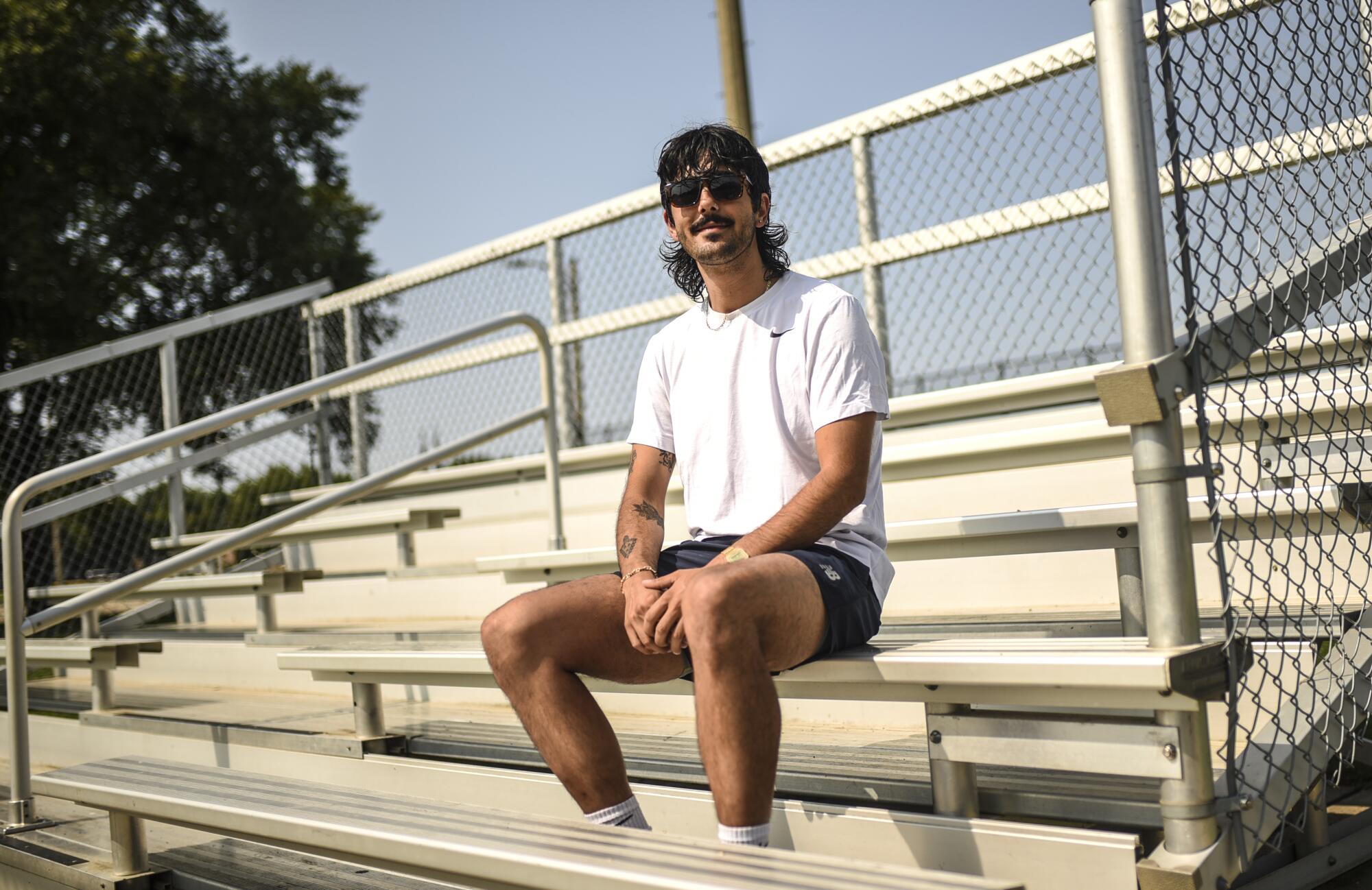
Ruiz, Trevino and about 40 other Tortuga runners recently came back from a Mexico City half-marathon. While some of the members ran, others cheered them on from Chicago.
“You just see them cheering for you, yelling ‘Tortugas,’ yelling your name,” Trevino said. “It allows you to keep going.”
The experience was difficult but beautiful, Ruiz said.
“During the race, it was all the feels because, wow, this is where my family’s from,” he said.
Ruiz, who never saw himself as a leader, is proud he started Tortugas. He doesn’t care about the medals or competing, he said, “I just want to run, make memories with my friends. That’s it.”
More to Read
The Latinx experience chronicled
Get the Latinx Files newsletter for stories that capture the multitudes within our communities.
You may occasionally receive promotional content from the Los Angeles Times.







